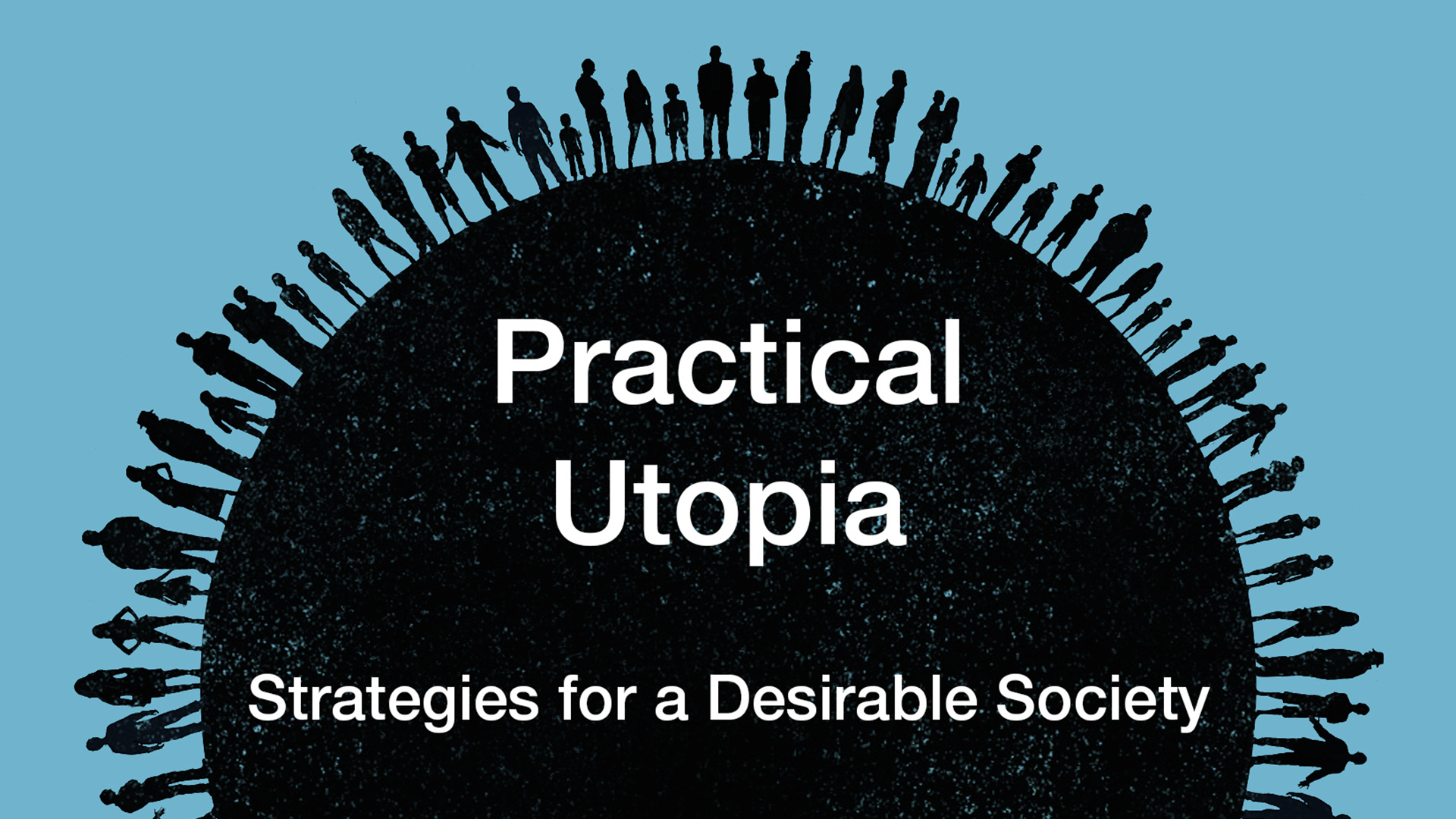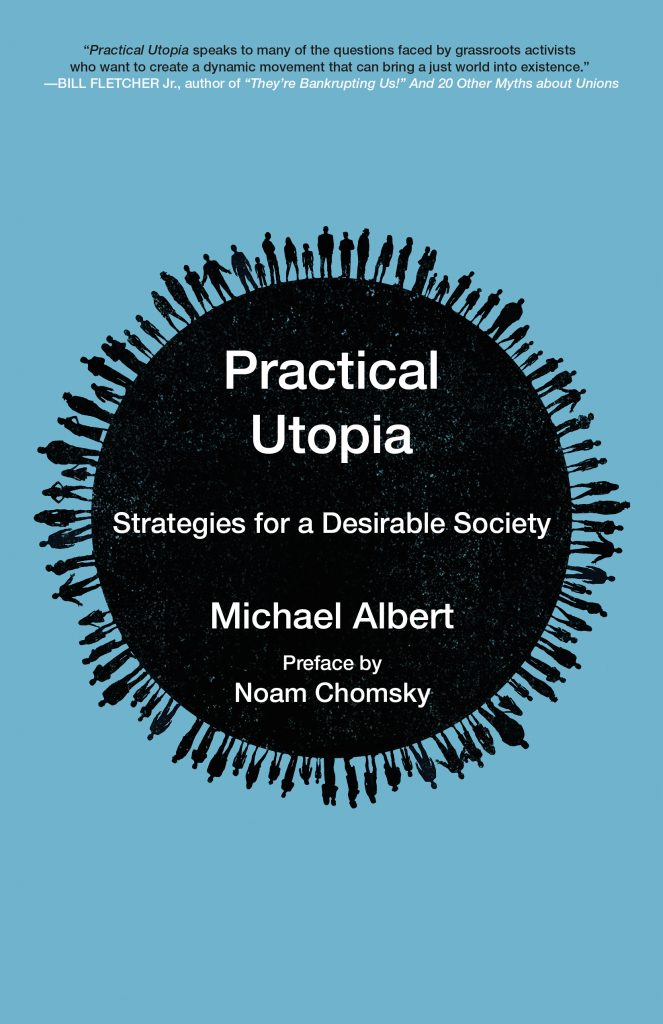By Michael Albert
Z Blogs
June 16th, 2017
I recently published a new book titled Practical Utopia with PM Press who I thank for accepting it and doing such a nice job of producing it. I just received my advance copies in the mail. Noam Chomsky did the preface and had this to say in it:
“It is true that ‘the new cannot be born yet’. But the forms it might assume depend on actions taken now and the visions of a future that animate them. Few have thought as long and hard about these matters as Michael Albert, along with constructive efforts at ‘planting the seeds of the future in the present.’ What he presents here is the distillation of a life of searching thought and dedicated activism that merits great respect and close attention.”
Bill Fletcher, quoted on the cover wrote about the book:
“Practical Utopia speaks to many of the questions faced by grassroots activists who want to create a dynamic movement that can bring a just world into existence.”
I hope their assessments are fair and accurate. But the only way to know is to consider the book itself and I hope you will.
Everyone thinks writing a book is really hard and that finishing one is, itself, a big accomplishment. There is some truth to that. It takes a whole lot of time and patience. You have to plug away, and away, and away. Depending on the type of book you may have to do research or dream up characters and situations and content. Still, I think the real issue is not writing a book, nor producing it, but getting a book read, and then creating an atmosphere and means for people to share their reactions to it, whatever those reactions may be.
My point is, the measure of any act is rarely if ever the act itself. It is not having done it, nor even even how much one likes it on having finished. The measure of any act – particularly an act aimed at accomplishing social good, is more often what it in turn provokes and achieves. For a book, a million sales and no actual serious readers, no sharing of ideas, no advance of thought and deed percolating through populations – is no big deal. A thousand sales and a thousand serious readers, much sharing of ideas, and much advance of thought and deed percolating further – yes, that is a big deal. So it is hard to write a book. Very hard to get sales. And still much harder to get constructive involvement.
I used to be a book publisher and had a hand in preparing and distributing roughly 200 books. I have also written a bit over twenty of my own, then, and since. As publisher, we chose the books we did from submissions. We worked on them with authors. In those days we endlessly prepared them by old fashioned incredibly time consuming means. And then we tried, despite a paucity of resources, to get them seen and assessed. The last was by far the hardest step – even in those days of endless typesetting. After all, having accepted a submission, we never failed to prepare the book, get it printed, and get it shipped. Sadly, relative to what the writing and thinking within the pages warranted, we often failed to attract sufficient readers much less engagement among readers.
I am now largely divorced from the book publishing industry, though I still write one every so often. When I set out to write a book, nearly every time I get it done. But when I then try to help the book get read and discussed, I have a much lower success rate.
As to the current situation, my impression is that even with all the new technology and connectivity and all the rest, the specific situation I have referenced has in the past few decades changed little for either publishers or writers, and maybe for the worse. Book after book, like article after article, gets written and appears. On the left, perhaps more publishing occurs by volume of manuscripts than ever, though that is just an impression. Nonetheless, declining numbers of people, I think, buy these efforts, at least on average, and still lower numbers read these efforts end to end or cover to cover. What is worse, even in that diminishing universe of actual readers, fewer and fewer relay, debate, and refine with others their thoughts about what they read.
So my hope for Practical Utopia is that you not only get a copy, but that you read it, and that you not only read it, but you convey to others your reactions and hear their’s in turn. You would all be speaking to “many of the questions faced by grassroots activists who want to create a dynamic movement that can bring a just world into existence,” and surely that is something we can all benefit from.
Feel free to append comments, criticisms, extensions, and reactions to this blog post – but about the book – or, if you have the energy and time for it, to post your own review of the book which I and others can in turn engage with.


